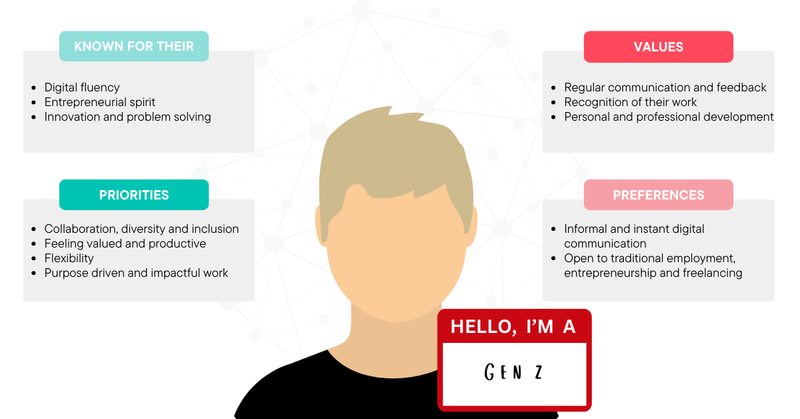Millennials have been targets of many misconceptions over the years. Despite being the largest generation in the workforce, they are often misunderstood. This article explores 13 significant falsehoods that have shaped public perception of millennials in various aspects of life.
1. Millennials are lazy

“Lazy” is a label millennials often face, despite them being one of the hardest working generations. Many millennials juggle multiple jobs and side hustles to make ends meet.
The gig economy, driven by millennial participation, illustrates their willingness to work hard albeit differently than previous generations.
Contrary to popular belief, millennials value work-life balance and flexibility, not because they are lazy, but because they prioritize mental health and personal development. This shift in priorities is sometimes misunderstood as laziness, when in fact it’s a different approach to work.
2. Millennials hate commitment

The myth that millennials fear commitment overlooks their desire for stability and meaningful relationships.
While they may delay traditional milestones like marriage or homeownership, it’s often due to economic factors rather than an aversion to commitment.
Millennials value deep connections and are committed to causes they care about, like environmental sustainability and social justice. Their commitment manifests in diverse ways, challenging the outdated notion that they shy away from lasting bonds.
3. Millennials are tech-obsessed

Millennials grew up alongside technology, but that doesn’t equate to obsession. They are adept at using tech to enhance their lives, not dominate it.
Many millennials make conscious efforts to unplug and engage in offline activities like reading or hiking.
While technology plays a significant role in their lives, it is often a tool for productivity and connection rather than a source of addiction, debunking the myth of an all-consuming tech obsession.
4. Millennials are entitled

The notion of entitlement is often unfairly attributed to millennials, a generation known for advocating for equality and fairness.
Many millennials strive for a better world, actively participating in volunteer work and social movements.
Their demand for fair treatment and opportunity is sometimes misconstrued as entitlement, when it is actually a pursuit of justice and inclusion for all. This stereotype fails to recognize the altruistic actions millennials take within their communities.
5. Millennials are financially irresponsible

Labeling millennials as financially irresponsible ignores the economic challenges they face, such as student debt and housing costs.
Many actively seek financial literacy, using budgeting apps and investing in stocks to secure their futures.
The pursuit of financial stability is paramount for millennials, who often prioritize saving and investing over extravagant spending, debunking the stereotype of financial recklessness.
6. Millennials don’t value privacy

The misconception that millennials disregard privacy stems from their comfort with sharing on social media.
In reality, they are keenly aware of digital privacy, often taking steps to protect personal information online.
Millennials value transparency and control over their data, challenging the idea that they’re careless about privacy. Their approach is more about trust and informed consent than recklessness.
7. Millennials are ruining traditions

Accusations of millennials ruining traditions often arise from their desire to adapt customs to modern life.
They honor traditions by infusing them with fresh, relevant perspectives, keeping them alive in a changing world.
Rather than destroying traditions, millennials redefine them, ensuring their relevance for future generations. This adaptability is a testament to their respect for cultural heritage, contrary to the criticism they face.
8. Millennials are always offended

The stereotype of perpetually offended millennials overlooks their capacity for critical thought and open dialogue.
Many millennials champion empathy and understanding, advocating for respectful communication across diverse viewpoints.
Their sensitivity to social issues reflects a desire for inclusivity rather than an inability to handle differing opinions. This myth undermines their pursuit of constructive, meaningful conversations.
9. Millennials are self-centered

The perception of millennials as self-centered misses their commitment to community and global causes.
Many are driven by a sense of social responsibility, participating in environmental and social initiatives.
The focus on collective well-being and sustainability reflects their concern for others, debunking the myth of selfishness. Millennials strive to make a lasting, positive impact beyond themselves.
10. Millennials are anti-social

Labeling millennials as anti-social fails to recognize their dynamic social interactions, both online and offline.
They value meaningful connections, often engaging in social activities that align with their interests.
The blending of digital and real-world interactions showcases their adaptability in forming lasting relationships, contrary to the belief of social aversion.
11. Millennials lack ambition

The myth of ambitionless millennials ignores their entrepreneurial spirit and eagerness to innovate.
Many pursue unconventional career paths and start-ups, driven by a desire to make meaningful contributions.
Their ambition is reflected in their pursuit of purpose-driven work, challenging the notion of a lack of drive. Millennials are reshaping industries with their creativity and determination.
12. Millennials are easily distracted

Seeing millennials as easily distracted misses their capacity for intense focus and multitasking.
They adeptly navigate the fast-paced digital world, honing their ability to filter information and prioritize tasks.
Millennials often thrive in environments that require adaptability and quick thinking, showcasing their resilience and concentration rather than susceptibility to distraction.
13. Millennials are bad communicators

The stereotype of millennials as poor communicators neglects their proficiency in diverse communication forms.
They excel in digital communication, often bridging generational gaps through their fluency in technology.
Millennials value clarity and authenticity, fostering effective interactions across various platforms. Their ability to connect meaningfully across diverse mediums challenges the misconception of communication incompetence.

